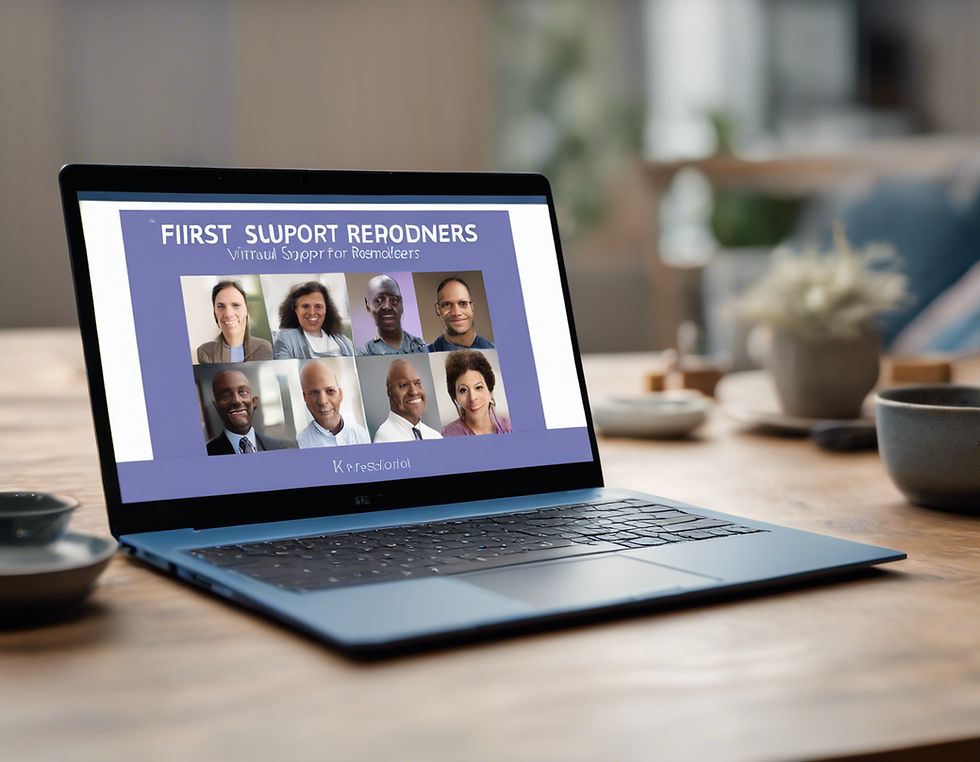Why Do I Keep Forgetting? Exploring Forgetfulness in PTSD and Why It's Not Your Fault
- Fiona Killalea
- Jan 31
- 4 min read
Have you ever found yourself stumbling over forgotten appointments or misplaced objects? If you’ve faced trauma, this forgetfulness may be a common symptom of Post-Traumatic Stress Disorder (PTSD). While it can be frustrating and embarrassing, it’s crucial to realize that this isn’t a measure of your intelligence or character. Instead, it’s deeply connected to how trauma can change the way your brain functions. Let’s explore how forgetfulness operates in the context of PTSD, while encouraging you to treat yourself with kindness on your journey to healing.
Understanding PTSD and Forgetfulness
PTSD manifests in many ways, with forgetfulness being one of the less talked-about symptoms. It’s not simply about losing your keys or forgetting a name. This type of forgetfulness can involve significant lapses in memory related to trauma, everyday activities, and even conversations that occurred just moments ago.
When your mind is racing to cope with trauma, it focuses on certain essential thoughts and actions, often at the expense of others. This can lead to issues with working memory—the part of your brain responsible for holding and processing information temporarily. For example, in a study, approximately 60% of PTSD sufferers reported issues with memory functions, indicating a widespread issue.
In essence, your brain is overwhelmed by the need to protect you, which may cause it to overlook other necessary information.
The Brain's Response to Trauma
Trauma triggers significant changes in the brain's structure and function. When faced with a traumatic incident, your body often shifts into a “fight or flight” response, primarily activating the amygdala—an area focused on survival. While crucial in life-threatening scenarios, this response can be harmful when faced with everyday challenges.
Research has demonstrated that chronic stress and trauma can alter important brain regions, particularly the hippocampus, which plays a vital role in memory formation. Studies show that those with PTSD may have a reduced hippocampus volume, and this can lead to increased forgetfulness. For instance, one survey found that nearly 80% of people with PTSD experienced some form of memory issues, illustrating how deeply trauma can affect mental clarity.
This means that forgetfulness associated with PTSD is not due to personal shortcomings but results from a brain under stress.
Forgetfulness as a Symptom: What You Might Encounter
Forgetfulness in PTSD can take various forms. People often experience:
Misplacing Items: This could involve forgetting where you left your phone or wallet multiple times a week. One study noted an increase in such incidents, with individuals reporting losing items 50% more often during stressful periods.
Forgetting Conversations: You might struggle to recall important discussions, which can disrupt relationships and commitments.
Experiencing Memory Gaps: Details of familiar routines, traumatic events, or even genuinely happy moments might slip from memory entirely.
These experiences can be distressing, making it feel as if you are losing control of your life. Understanding that these symptoms are common among those with PTSD may help alleviate some of that burden.
Be Kind to Yourself
As you face the effects of PTSD on your memory, it’s essential to practice self-compassion. Forgetfulness is not a flaw in your character; rather, it’s a symptom of a brain overwhelmed by the task of processing intense and complex experiences.
Holding yourself to pre-trauma memory standards can lead to frustration and anxiety. Instead, embrace a nurturing mindset. Here are some effective self-care strategies to cope:
Establish Routines: Create daily schedules to provide structure. Research shows that individuals who follow routines see a 30% decrease in stress-related forgetfulness.
Write Things Down: Utilize notebooks or digital planners to keep track of significant dates and tasks. Studies have found that note-taking improves memory recall by up to 50%.
Practice Mindfulness: Engaging in mindfulness techniques can help calm your mind, enhance focus, and lower anxiety levels.
Seek Support: Open up to friends, family, or join support groups. Sharing your experiences can help reduce feelings of isolation.
Engage in Healthy Activities: Physical activities, hobbies, and creative endeavors can provide a welcome distraction and promote mental well-being.

The Healing Journey
Healing from PTSD is not a straightforward path. Just as symptoms can vary, your memory and cognitive abilities may improve at different speeds. You are likely to have both good days and challenging days—and that’s perfectly normal.
It's important to recognize that forgetfulness in PTSD is often a misguided protective reflex. Your brain’s intention may be to safeguard you from pain, so understanding this can replace blame with compassion.
As you move through your healing journey, don’t hesitate to reach out for help. Counseling or therapy can provide essential tools to cope with PTSD symptoms, including forgetfulness. Data suggests that individuals who engage in therapy see a 70% improvement in cognitive functions over time.
Finding Peace in Understanding
Forgetfulness is a common and valid symptom experienced by many facing PTSD. It's crucial to understand that your experiences stem from your brain's response to trauma, and it is absolutely not your fault.
Remembering to be kind to yourself is key in your healing process. Accepting the complexities of PTSD and forgetfulness can help alleviate the feelings of frustration or inadequacy that often accompany these experiences.
Ultimately, healing is a gradual process. With patience, self-kindness, and solid support, you can navigate through these challenges and reclaim a clearer sense of memory and peace. You're not alone, and there’s hope for a brighter future where clarity returns, and serenity flourishes. Understanding forgetfulness in PTSD not only validates your experience but empowers you to move forward. Embrace this journey with hope, as it can lead to profound strength and understanding.








Comments